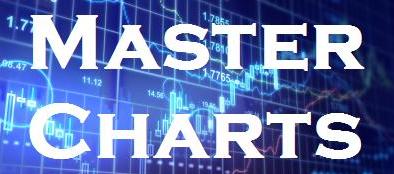High frequency trading accounts for 60 per cent of U.S. equity trading, says Reuters
And the average trade is held for less than 10 seconds.......
According to Reuters, high frequency trading accounts for 60 per cent of U.S. equity trading. Last week, the U.S. Commodity Futures Trading Commission began a series of meetings with exchanges, including equity exchanges, to decide if it should place controls on algorithmic or high frequency traders.
While the U.S. markets could face regulations, many news outlets say Asia is joining what the media has taken to calling the "global trading arms race." Reuters says that currently only 30 per cent of equity trading is high freqency in Tokyo and Singapore, however exchanges in Tokyo, Singapore and Hong Kong are planning upgrades to accommodate high frequency traders from the U.S. and Europe.
Hong Kong Exchanges & Clearing's website say it hopes to increases its order processing speed to 15,000 transactions a second from 3,000 transactions by 2011. Earlier this year, the Tokyo Stock Exchange and Fujitsu introduced their $145-million (U.S.) trading platform called Arrowhead. It executes trades in under five milliseconds. The TSE's website says it is hoping to increase its trading speed further in the next few years. Singapore is also trying to increase trading speeds. Its website says it is building the "world's fastest trading engine," SGX Reach, which it hopes to complete by the beginning of 2011. The SGX says the new $250-million (U.S.) engine will carry out trades in 90 microseconds, which is 55 times faster than Tokyo's Arrowhead.
Pure Trading third again, Asia joins arms trading race
2010-07-19 20:46 ET - Street Wire
by Stockwatch Business Reporter
Pure Trading was the third most active of Canada's alternative trading systems in the week ended July 16, 2010. The leader, once again, was Alpha Trading Systems, which averaged 133.1 million shares per day. In second place was Chi-X Canada, with 34.9 million shares, followed by Pure Trading with 30.2 million shares. In fourth place was dark pool Match Now with 6.8 million, and in last was Omega ATS with 3.9 million shares per day. Combining their volumes, the ATSs accounted for 29.1 per cent of the market.
Alpha will introduce a new trading facility, Alpha IntraSpread, in the fourth quarter of this year. Alpha IntraSpread will offer a pair of new order types that will allow dealers to seek matches within their firm for guaranteed price improvement. Alpha Group chief executive officer Jos Schmitt says Alpha IntraSpread fees will be the lowest of any marketplace in Canada.
The two new orders types are "dark" and "seek dark liquidity." The dark order is fully hidden and will only trade with incoming seek dark liquidity orders. Alpha will cancel any seek dark liquidity order that does not trade immediately.
According to Reuters, high frequency trading accounts for 60 per cent of U.S. equity trading. Last week, the U.S. Commodity Futures Trading Commission began a series of meetings with exchanges, including equity exchanges, to decide if it should place controls on algorithmic or high frequency traders.
While the U.S. markets could face regulations, many news outlets say Asia is joining what the media has taken to calling the "global trading arms race." Reuters says that currently only 30 per cent of equity trading is high freqency in Tokyo and Singapore, however exchanges in Tokyo, Singapore and Hong Kong are planning upgrades to accommodate high frequency traders from the U.S. and Europe.
Hong Kong Exchanges & Clearing's website say it hopes to increases its order processing speed to 15,000 transactions a second from 3,000 transactions by 2011. Earlier this year, the Tokyo Stock Exchange and Fujitsu introduced their $145-million (U.S.) trading platform called Arrowhead. It executes trades in under five milliseconds. The TSE's website says it is hoping to increase its trading speed further in the next few years. Singapore is also trying to increase trading speeds. Its website says it is building the "world's fastest trading engine," SGX Reach, which it hopes to complete by the beginning of 2011. The SGX says the new $250-million (U.S.) engine will carry out trades in 90 microseconds, which is 55 times faster than Tokyo's Arrowhead.
MasterSearch
Subscribe to:
Post Comments (Atom)

No comments:
Post a Comment
Commented on The MasterCharts